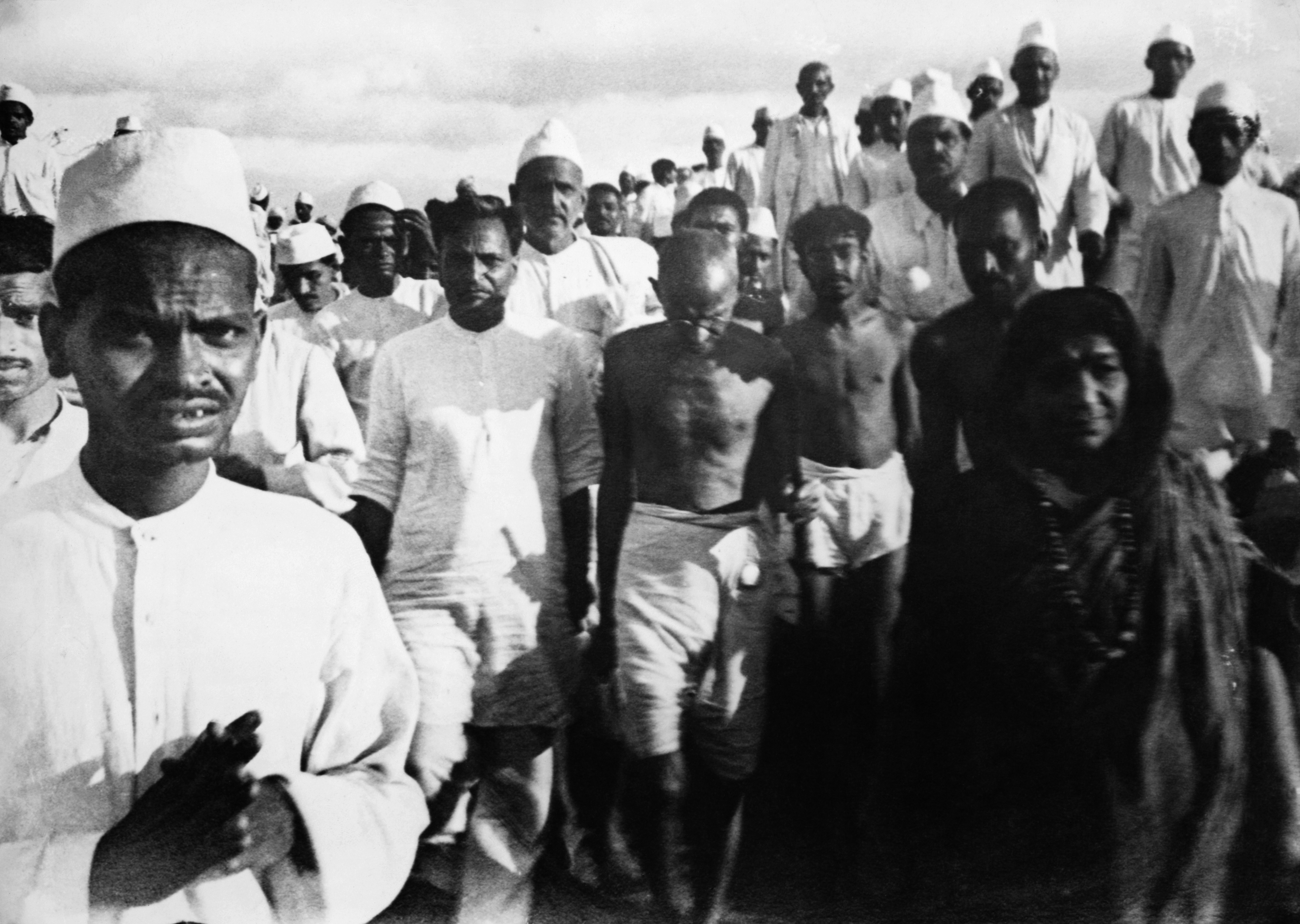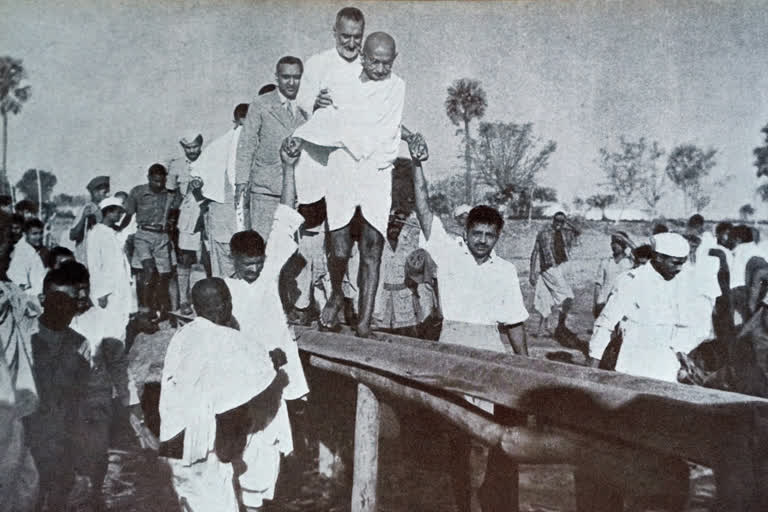Hyderabad: While Otto Von Bismarck, the conservative Prussian statesman said: “Politics is the art of the possible, the attainable – the art of the next best”; Albert Einstein, the world’s acclaimed physicist said: “Politics is more difficult than physics."
Before Gandhi’s entry into politics, it was always considered that politics means manoeuvres with success at its end at any cost.
J.B. Kriplani quotes Gandhi saying: “The whole gamut of man’s activities today constitutes an indivisible whole. You cannot divide life, social, economic, political and purely religious, into watertight compartments.”
Gandhi was making the ‘truth’ of life an integral one.
The first biography of Gandhi, 'M.K.Gandhi, An Indian Patriot in South Africa' was written by Joseph J. Doke, a Christian missionary in South Africa in 1909, when Gandhi was just forty years old.
Romain Rolland, the French dramatist, art theoretician and Nobel laureate [1915] wrote about Gandhi in 1922, without even seeing or meeting Gandhi once, 'Mahatma Gandhi: The Man who became One with the Universal Being.'
Erik H. Erikson, the Freudian psychoanalyst of US, in his 1969 book 'Gandhi’s Truth: The Origins of Militant Non-violence' invoked the image of Freud himself when saying: “In case of Freud and Gandhi, contemporaries, we must look at the self-inspection practised by such men in public as part of an 'evolutionary' trend in man to break through the new kinds of awareness.”
Pannalal Dasgupta, a forgotten Marxist revolutionary wrote in 1954-55 in Bengali, 'Revolutionary Gandhi', considering Gandhi as a social revolutionary in the series of Marx, Lenin etc. Manu Gandhi, one of ‘the walking sticks’ of Gandhi wrote a memoir of him in 1949 – Bapu, My Mother.
Ashis Nandy in 'The Intimate Enemy, OUP' (1983) defies conventional studies on colonialism and considers that Indian anti-imperialism found in Gandhi’s counter-modernity a new language of dissent. The list is not exhaustive but indicates different ways in which Gandhi is understood.
In Hind Swaraj (1909) Gandhi challenged the model of the Western industrial civilization and the common view that progress of a civilization could be judged in terms of the sophistication of machines, technology and weapons, and the standards of material comfort enjoyed by society.

He also offered a critic of social change relying upon arms which negates the supremacy of human being or human reasoning. If liberation is the end, it can have only liberating means.
Since his days in South Africa, Gandhi was in search of a method or technique or means of resistance which would suit his path of truth.
The means must be in consonance with the fundamental moral principles which guide our other parts of life.
In his philosophy, life is an integral act, and we cannot have one truth and one method for individual liberation and a different truth and method for social liberation. He ultimately had chosen the word ‘Satyagraha’ which means the pursuit of truth and steadfastness therein.
‘Means’ is the essence of Gandhi’s social action. He holds that ends and means are convertible terms. If the latter deviate from the moral law, the end, whatever its outward appearance, will not be the one desired and worked for.
He contended: “They say means are after all means. I would say means are after all everything. From childhood till death he made his life into a series of experiments in realization of that truth, sometimes rescinding his own earlier idea of truth.
In his initial days, Gandhi believed that God is Truth. But in the late 1920s, he modified his principle as Truth is God. Thus ‘Truth’ is placed above God. Truth has to be discovered and established through Truth itself.
However, Gandhi never claimed that he had, once and for all, discovered the ‘ultimate truth’ or ‘was seeking such a thing’. “In fact what I have caught is only the faintest glimmer of that mighty effulgence.”
Pannalal Dasgupta while distinguishing scientific truth and Gandhi’s Truth says: “The scientific outlook precludes a subjective approach. The vision of a poet or an artist is essentially subjective. If we analyze the scientific temperament of Gandhiji by this standard, we will see how single-minded was his pursuit and practice of objectivity”.
Gandhi combined the two antagonistic elements – subjective and objective methods in the search of ‘Truth’.
His ‘inner voice’ is basically an idea to restore the ‘intuitive knowledge’, one of the sources of knowledge, to its due place in epistemology.
Gandhi’s views are an organic whole, synthetic, integrating and reforming. “It is easy to find logical inconsistencies in synthetic thought,” said Kriplani, ‘since, synthesis implies the union of opposites, that would always appear contradictory to formal logic.’
Gandhi seeks to synthesize several dialectical opposites viz., the theory and the praxis, the ends and the means, the material and the spiritual, the individual and the collective etc.
He searches in the Indian tradition also for some solutions. Felipe Fernandez-Armesto, the British historian says: “No one should ever feel ashamed of turning back to tradition. The memory of what previous generations have learned is the foundation of all possible progress. When traditions conflict, they need more care, not less: they should be keenly scrutinized, not casually discarded.”



